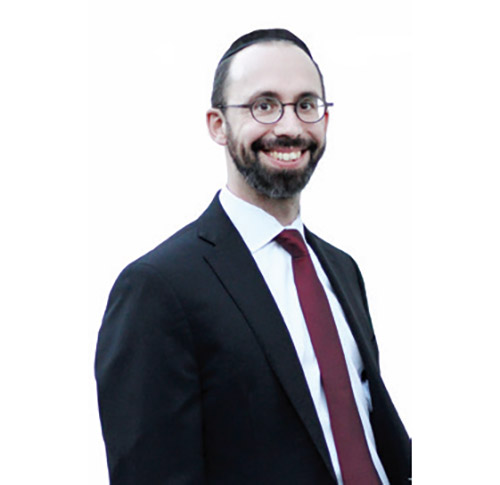
I took my children to an indoor video game arcade on a rainy day of Chol Hamoed. Most of the people there were children and teenagers, but two people really caught my attention. One was an elderly man playing video games all alone in a motorized wheelchair with an oxygen tank. The second was an elderly lady in a wheelchair, accompanying her daughter, son-in-law and grandchildren. Clearly, this was not an easy trip for either one. The elderly grandmother seemed to have various aches and pains, but I saw the visible pleasure on her face as she watched her grandchildren play and choose prizes, while she encouraged and congratulated them. The elderly man was laboring to breathe, exerting himself to play game after game. The similarity—and the contrast—between the two was striking.
I pondered: What makes a person exert himself—whether for his own pleasure or that of others? In Parshas Acharei Mos, Hashem instructs Moshe about the Yom Kippur service: Take two identical goats to the Beis Hamikdash and cast a lottery. One will be slaughtered, with its blood sprinkled inside the Kodesh Hakodashim, the Holy of Holies. The other will be pushed off a steep cliff. Although both goats will be killed, on first glance it seems the slaughtered one represents a greater atonement. Yet, the pasuk (verse) says the goat pushed off the cliff “will stand in front of Hashem alive to achieve an atonement” (16:10). Clearly, they were both an integral part of the service to Hashem, to effect forgiveness for klal Yisrael; they each had an important role.
In a similar way, our “lot,” i.e., our current condition, is determined by Hashem, but what we do with it is up to us. We can choose to serve Hashem with our current resources. Both of these elderly individuals were handicapped. Both were challenged. Both were entitled to enjoyment, but the grandmother elevated her challenged “lot” by focusing on the joy of others.
This vignette also adds perspective to the days of Sefiras HaOmer (counting of the Omer). We started counting from the second day of Pesach toward Shavuos. Many ask: Why do we count up and not count down toward our goal of Shavuos? At races, at rocket launches we always count down!
Rav Shimshon Pincus says that typically, when there’s a gap of time between two events, we count down because time is a barrier and we want to rid ourselves of it. However, the time between Pesach and Shavuos is different: it’s a build-up, where each day is crucial, and each day can mean another accomplishment!
This is illustrated in the wording of the pasuk “usefartem lachem,” you should count for yourselves (Emor 23:16). What does it mean for yourselves? The Chasam Sofer explains that the counting is to build ourselves up! With each day we should try to develop ourselves further so we can be ready to acquire the Torah on Shavuos.
Parents feel this all the time with small milestones: a baby’s first rolling over, first time sitting, crawling, speaking… Each stage is an achievement. No one wants the child to be stuck. It is exciting for a baby to start crawling, but very concerning if they are 3 years old and can only crawl. Crawling, walking, talking: each stage is crucial in developing the individual.
Each day of sefira is available to build us up to approach Shavuos. Each week as well. We count both the days and the weeks of the Omer. This is why if we forget to count one day, we can no longer count with a blessing, because each day is crucial to the counting! But the Torah doesn’t guide us much regarding our focus. That’s because every person is different. It’s a personal counting where we need to determine and work on the areas in which we need development. We need to make our own plan of action. We can help ourselves with the custom of learning Pirkei Avos each Shabbos of Sefira. As Rav Chaim Vital tells us, working on our character traits is the key pathway to instilling Torah in ourselves.
We all have our own personal challenges and difficulties. During these days of sefira we need to choose to make each day count—to do something greater than achieving our own personal pleasure. Pick one area. Do something very small and work on it. It’s our choice: are we like the elderly man laboring to play and enjoy another video game, or like the wheelchair-bound grandmother exerting herself to give enjoyment to her family? Let’s exert ourselves to make others happy. This will make us much happier as well and help lead us to a state of readiness to receive the Torah on Shavuos.
By Rabbi Baruch Bodenheim
Rabbi Baruch Bodenheim is the associate rosh yeshiva of Passaic Torah Institute (PTI)/Yeshiva Ner Boruch. PTI has attracted people from all over northern New Jersey, including Teaneck, Bergenfield, Paramus, Rockaway and Fair Lawn. He initiated and continues to lead a multi-level Gemara learning program. Recently he has spread out beyond PTI to begin a weekly beis midrash program with in-depth chavrusa learning in Livingston and Springfield. This year he joined Heichal Hatorah in Teaneck as a Gemara iyun rebbe. His email is [email protected].










